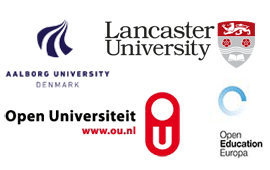

Trace ethnography: working with data from learning and assessment
Cormac O'Keeffe, YES ‘N’ YOU, Paris, France
The multitude of practices that make up education are increasingly being shaped by data production. The digital interactions that have been intensifying existing data production technologies have been accompanied by novel ways of creating, sharing and presenting these data to educators and learners and have been influencing how educational attainment is represented, performed and managed. This presentation outlines possible ways of investigating how data about educational interactions and attainment are produced as well as discussing the characteristics of ‘trace data'. It explores methodological approaches that allow the researcher to follow the distributed agency of hypermobile digital actants. Drawing upon software studies influenced by material semiotics code is regarded as an actant, or an entity capable of having agency within the socio-material networks that produce e-assessment data. Methodically, this presentation investigates the digital data produced by human actants as well as coded ones and as such includes the log files, automated messages and algorithms that produce ‘trace data' that can be used to reconstruct e-assessment events as socially and digitally co-constituted. Combined with ethnographic fieldwork, interviews and documentary evidence, this methodological approach is known as trace ethnography. In this respect, e-assessment is investigated not as a psychological or technical instrument used to ‘gather' or ‘collect' data. Rather, it is seen more from an anthropological standpoint as a practice. In particular, digital assessment practices are presented as a site of investigation for digital ethnography. I argue that assessment and its associated technologies are key to understanding how semiotic modes are rendered comparable through table-reliant data production practices that in turn influence educational practices. The presentation concludes with suggestions for how researchers, practitioners and other stakeholders can make decisions informed by an understanding of how data are produced by the various epistemic communities that perform the work of data production.
Keywords
Data, trace ethnography, assessment, digital methods
Joint Organising Institutions
| Conference Travel and Accommodation |Doctoral Consortium | Past Conference Proceedings | Contact |